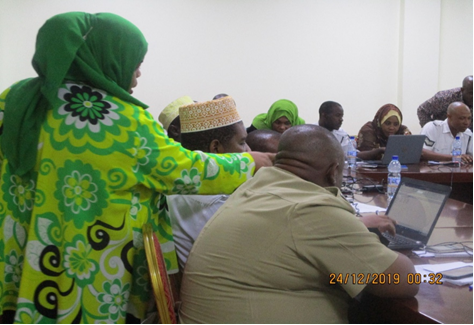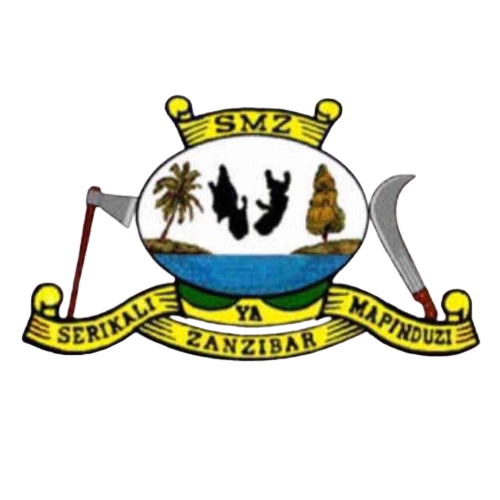global navigation bar
Friday 19th of April 2024
"MAKING EVERY WOMEN AND GIRL COUNT"





Gender statistics are needed to measure and monitor the realities of the lives of women and men, and of girls and boys. A broad diversity of topics and issues is covered under the heading of gender statistics, reflecting the changing roles of women and men in society, in the economy and in families and households.
Gender statistics help policy makers to formulate and monitor policies and plans, monitor changes, and inform the public.
UNWomen, a UN organization dedicated to gender issues particularly women, works with UNECE member states to improve the monitoring of gender equality in all its many dimensions across regions and countries, by facilitating the exchange of best practices and the development of guidelines and recommendations on the collection, production and dissemination of gender-relevant indicators. Their work in this area is guided by the Gender Steering Group which, among other activities, holds Work Sessions on Gender Statistics approximately every 18 months. These work sessions provide a regular forum for member states, international organizations working in statistics, and others, to share and develop ideas concerning concepts, methodology, progress and emerging issues in gender statistics.
The Zanzibar Constitution of 1984 declares equal rights of men and women, and equal access to social, economic and development opportunities. Zanzibar which is a part of the URT has dedicated to implement and monitor national and international conventions including MKUZAIII, the Sustainable Development Goals (SDGs) the Declaration of the Human Rights 1948; the UN Convention on the Elimination of All Forms of Discrimination Against Women (CEDAW 1979); the Convention on the Rights of the Child (CRC) 1989 and the Convention on the Elimination of Discrimination in Employment.
Successful implementation of global, regional and national development agendas while observing gender disparity and differentiation, regular monitoring and evaluation is inevitable. Statistics is a key tool for monitoring and evaluation. Gender statistics has now become among the global agenda by itself and as it is well known that gender is a cross cutting issue in all socio-economic perspectives. This put gender statistics in a position of among important items to be taken care of by the OCGS.
The Office of the Chief Government Statistician has set up strategies to strengthening gender statistics. The first strategy is to have the gender statistics unit within the Office of Chief Government Statistician. In doing all its work, the Office must work closely with stakeholder among MDAs who, in one way or another, deal with gender issues in their day to day work. Another effort taken by the Officer it to have gender focal persons in MDAs and CSOs and then to build the capacity of these focal persons.
All the mentioned strategies were done by the Office of Chief Government Statistician whereas the unit is in place and the gender focal persona in 28 institutions were identified and 35 participants from those institutions were attended in the first training of capacity building on Integrating Gender Statistics in Administrative Data Systems through their routine agencies activities. This training conducted in May,2019 at the Office of Chief Government Statistician and sponsored by UN women under the programme of Making Every Women and Girl count (MEWGC).
Gender is a cross cutting issue and therefore no one will be left out when talking about stakeholders of gender statistics. To be more strategic towards addressing the gap on gender statistics, OCGS has identified the following key stakeholders to deal with gender statistics:
i. Office of the Chief Government Statistician
ii. Ministry of Labor, Empowerment, Elders, Women and Children
iii. Police
iv. Chuo cha Mafunzo
v. Ministry of Health
vi. Ministry of Education
vii. Ministry responsible for Constitutional Affairs
viii. Ministry responsible for Good Governance
ix. Local Government Authorities
x. Judiciary
xi. Second Vice Presidents Office
xii. Department of People with Disability
xiii. Department of Social Welfare
xiv. Zanzibar Commission for Tourism
xv. Tanzania Media Women Association (TAMWA)
xvi. TV and Radio Stations
xvii. Association of the Non-Governmental Organization Zanzibar (ANGOZA)
Currently, Office of the Chief Government Statistician is executing one project with the aim of strengthening gender statistics in Zanzibar. This project is named "Making Every Women and Girl Count" is implemented under the support of UNWomen. The project bring together all stakeholders of gender statistics under coordination of OCGS and MLEEWC. The main focus is to ensure the availability of gender statistics for monitoring the implementation of Sustainable Development Goals and other international, regional and national commitments on gender equality and women empowerment (GEWE) as well as on violence against women and children (VAWC).
Jumla ya matukio 115 ya ukatili na udhalilishaji wa kijinsia yameripotiwa mwezi wa Septemba, 2020.
Kulikuwa na waathirika 115 ambao waathirika Wanawake ni 14 (asilimia 12.2) na watoto ni 101 sawa na asilimia 87.8, miongoni mwao wasichana ni 82 (asilimia 81.2) na wavulana ni 19 (asilimia 18.8).
Key Indicators
25% of households headed by females
31% of parliamentary seats are held by women
Additional Zanzibar Priority GEWE Indicators which are not part of global GEWE
Gender Equality and Women’s Empowerment (GEWE) Indicators
Publication
25% of households headed by females
31% of parliamentary seats are held by women
Additional Zanzibar Priority GEWE Indicators which are not part of global GEWE
Gender Equality and Women’s Empowerment (GEWE) Indicators
Events
25% of households headed by females
31% of parliamentary seats are held by women
Additional Zanzibar Priority GEWE Indicators which are not part of global GEWE
Gender Equality and Women’s Empowerment (GEWE) Indicators
Related Links
25% of households headed by females
31% of parliamentary seats are held by women
Additional Zanzibar Priority GEWE Indicators which are not part of global GEWE
Gender Equality and Women’s Empowerment (GEWE) Indicators





